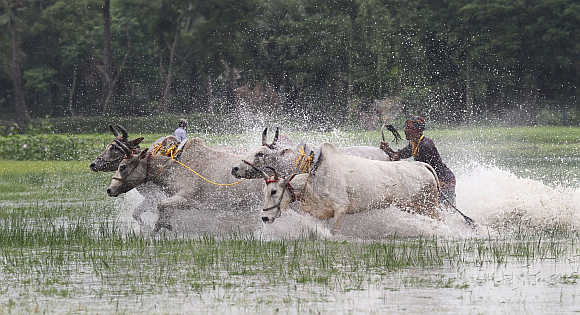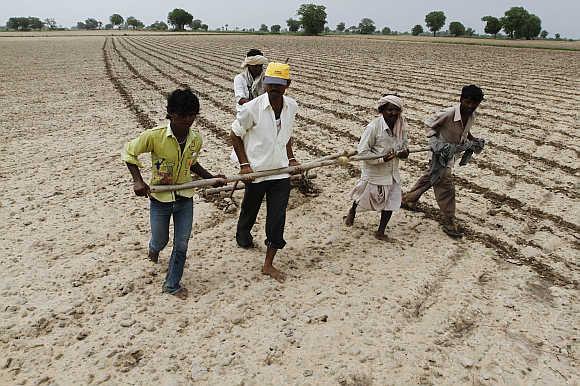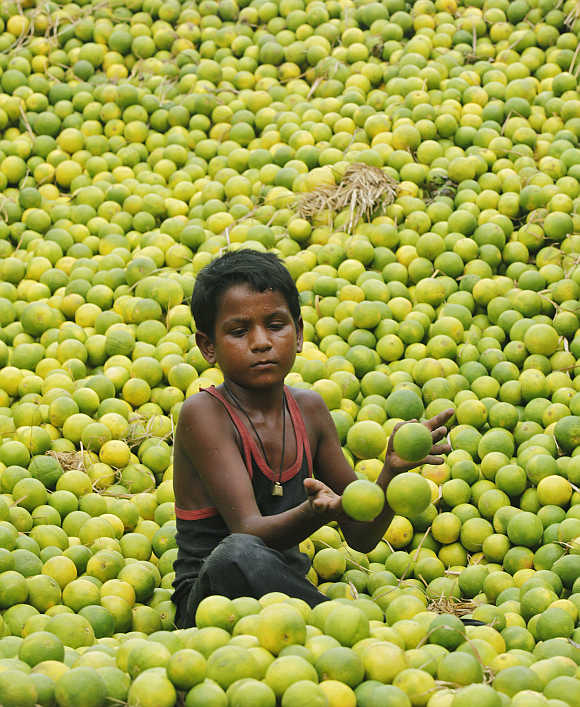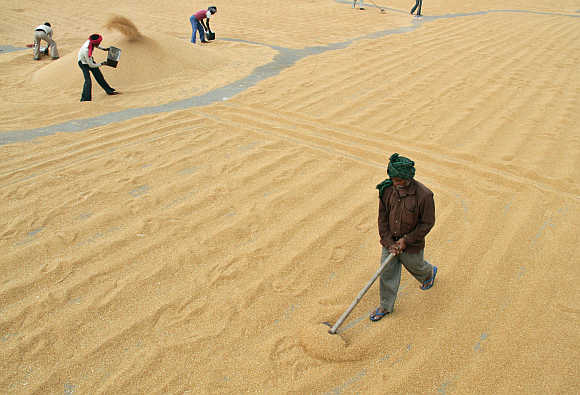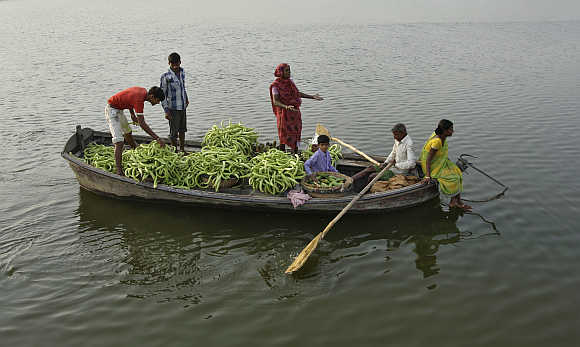 | « Back to article | Print this article |
Why malnutrition, not hunger, is the problem in India
The United Nations’ Food and Agriculture Organisation has worked out the cost of malnutrition to the world economy: about five per cent of its annual gross domestic product, or $3.5 trillion, in terms of foregone production and health expenditure.
Even more important is the FAO’s assessment of potential gains from investment in enhancing the nutritional standards of the population. The FAO’s report titled “State of Food and Agriculture 2013” maintains that reducing the symptoms of malnutrition would boost earnings, with a benefit-to-cost ratio of almost 13 to one.
Click NEXT to read more...
Why malnutrition, not hunger, is the problem in India
These estimates have come at a time when India is planning to put in place an expensive food security law aimed chiefly at banishing hunger by doling out highly subsidised cereals, largely rice and wheat - and not so much at removing malnutrition, more likely caused by diets deficient in proteins, vitamins and other vital nutrients.
The menace of hunger, which used to cause starvation deaths, has in fact been surmounted to a large extent. But the country’s track record in combating undernourishment seems unsatisfactory. An earlier report by another UN agency, United Nations Children’s Fund, had said that malnutrition appeared more common in India than in sub-Saharan Africa. Sadly, according to Unicef, one in every three malnourished children in the world lives in India.
Click NEXT to read more...
Why malnutrition, not hunger, is the problem in India
Though questions have been raised about these figures, the statistics are worthy of attention: around 46 per cent of all children below the age of three in India are too small for their age, 47 per cent are underweight, and at least 16 per cent are wasted.
Worse still, the report attributes 50 per cent of all child deaths in the country to insufficient nourishment. However, it is very important to note these are still open questions. It has been argued that some perceived stunting is due to genetic factors.
Other symptoms of malnourishment could be caused by poor sanitation instead, a point that Rural Development Minister Jairam Ramesh made recently.
Click NEXT to read more...
Why malnutrition, not hunger, is the problem in India
So the direct causal link between improving the availability of food and ending malnutrition is not straightforward. Even without that wrinkle, the strategy for combating malnutrition outlined by the UN agency takes the opposite tack to the government’s food security approach.
The FAO urges the reorientation of agricultural research and development priorities to make them more nutrition-sensitive - with a stronger focus on nutrient-dense foods, such as fruit, vegetables, legumes and livestock products. It also envisages interventions in the food production system with greater emphasis on micronutrient-doped fertilisers, bio-fortified crops and a judicious blend of crops and livestock farming.
Click NEXT to read more...
Why malnutrition, not hunger, is the problem in India
It also suggests that consumer subsidies should be targeted at high-risk groups, such as the elderly and children. It stresses the reduction of losses and wastage - which currently amount to one-third of food output - to make more food available for human consumption and reduce pressure on land and other natural resources.
Few of these central recommendations factor in the government’s food security approach. Nor is sanitation given the focus it deserves. The government needs to revisit its food security proposals and rework them.
